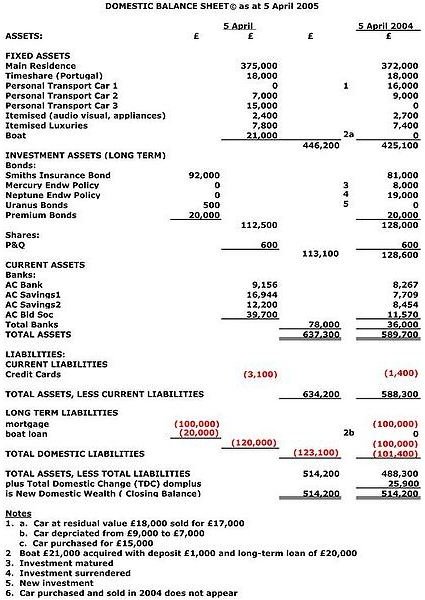Should You Incorporate? Collection of Tips Strategies and Tools
Whether you should incorporate or set your business up as a different entity depends on the amount of protection you need from lawsuits, the tax liability your business may incur, and other reasons that are usually personal. Each entity is taxed differently. A for-profit corporation pays taxes on income it generates before it pays employees. Employees are then taxed on their income, which means that if you are the only employee and you are the owner, you are double-taxed on income.
A limited liability company can be set up like a partnership or a corporation. This structure offers some protection from creditors if you do
not personally guarantee the line of credit. A limited liability company also allows income to “pass through” to the owner. Taxes are paid on income that passes through to the owner/employees, not on income brought into the company.
Each entity has its own tax structure, which is outlined in the tax code at IRS.gov. You should review how the IRS treats each entity before deciding which entity you want to use for your business.
Corporations
If your business is a high-risk business, for example, you sell food whether ready-made or prepared in a restaurant setting, or you own an auto repair shop, you have a high-risk business. If your staff does not prepare food properly, you could have a lawsuit on your hands. If your auto technician doesn’t tighten the bolts up on the wheels he just installed on a customer’s classic Camaro and the wheels come off, you could also have a lawsuit on your hands.
To keep your personal interests safe, you should incorporate. The plaintiff could only sue the business in most cases. This is the biggest benefit of incorporating. The downside of incorporating is the financial aspect of it. In many states, it costs more to incorporate than it does to set up other entities. Every dollar is taxed; there are no “personal” tax breaks for corporations. A corporation is harder to dissolve than other entities.
-
[Budgeting Tips for Startup Businesses

](https://www.brighthub.com/office/entrepreneurs/articles/56570.aspx)
Limited Liability Corporations
A limited liability corporation is a bit easier to set up than a corporation is, though this type of entity does require that you file annual reports and have a meeting of the members. A limited liability can be set up to follow a corporate structure or a partnership structure. This entity uses an operating agreement rather than bylaws. The operating agreement dictates how the business is run. For example, how managing members may be added, how to remove a member or managing member, how profits are to be disbursed, and rules for annual or more frequent meetings.
The tax structure is also better for most small companies. Instead of the owner being taxed as a corporation and then, being taxed again as an employee, the profits filter down to the managing members and members, and are then taxed as income to the individuals.
A limited liability corporation also has other limits. While it gives the owner the protection of a corporate veil, it is pierced more easily. For example, if an owner receives a line of credit or a credit card and personally guarantees it, the corporate veil does not protect that member for being sued personally for default on that loan.
You can set up your limited liability corporation as a partnership instead of a corporation. Like an LLC, the LLP is taxed as the personal level: income passes through to the members. In a limited liability partnership, a member could be an individual or another company.
-
[Understanding LLPs

](https://www.brighthub.com/office/entrepreneurs/articles/46811.aspx)
Sole Proprietorship
A sole proprietorship is one of the easiest entities to set up, but it does not offer the owner protection under the corporate veil that a corporation offers. It doesn’t even offer the limited protection of a limited liability company or limited liability partnership. The owner of a sole proprietorship is taxed at an individual level; the company is not taxed. The owner is responsible for all aspects of the business: assets, liabilities, lawsuits and taxes.
This might be beneficial for the small business owner who works from home in a business that has little liability, such as an administrative service provider or a writer. While a company that provides services may be a sole proprietorship, if someone sues the company, the owner is liable for the outcome of the lawsuit. If the plaintiff wins, the owner is personally responsible for the judgment. If a creditor goes after the sole proprietorship for an unpaid debt, it can also collect and lien the owner’s personal, non-business assets.
- Starting a Sole Proprietorship Business
- Four Advantages of a Corporation over Other Organizational Forms
- Starting a Business? Find Out if Sole Proprietorship Is For You?
- Learn Whether You Need to File a Schedule C with Your Income Taxes
- Understanding Unemployment Insurance for the Self Employed
- Tax Tips for Married Business Partners
- How Do I Write Off Bad Debt On My Tax Return?
- Sole Proprietorship Tax Worksheet
Conversions
You can elect to change from one entity to another. Some are easier than others are. Each conversion has its own tax ramifications, and you must notify the IRS of the conversion. If you do not understand the tax ramifications, you should always contact a tax attorney for advice. The easiest conversion is from a sole proprietorship to any other entity. Since a sole proprietorship is not a stand-alone entity, you simply register your business as the new entity. Other conversions require a revocation of the original entity before you can start doing business as the new entity.
- S Corp to C Corp Conversion: What Is Required to Revoke an S Corporation Election?
- Going from Sole Proprietor to S Corp
- Changing from a C Corp to an LLC: What You Need to Know
Dissolving a Business Entity
You can dissolve a business entity when you go out of business, when you file for bankruptcy, or if you want to change the type of entity you do business under. Each type of business has its own rules for dissolving. A business can be automatically dissolved by the Secretary of State for non-payment of your yearly fees and if you do not file the required documents.
- Sample of an LLC Member Withdrawal Form
- Sample Business Dissolution Template
- Sample Corporate Dissolution
Considerations
Before making a decision whether to change or dissolve the entity you do business under, or before choosing an entity for a new business, be sure that you understand how to file the taxes for the entity you choose. You should also understand who is responsible for assets, liabilities and lawsuits for each entity: the business or you, personally.
- 7 Types of Taxes and How You Pay Them
- Corporate Tax Laws and Improper Accumulation of Income
- The Effects of Debt Interest and Dividends on Taxes
- Types of Taxes for Online Businesses: Do You Owe the IRS?
- Triple Taxation: Corporate Ownership of Other Companies
- Dreaded Tax Audit - Are You Safe?
- Advantages of S Corporations
- Calculating S Corp Retained Earnings
Choosing the appropriate entity for your situation is important. If you have any other tips or experiences, we want to hear from you. Please use the comments section below to tell us what you think about our guide and how we could make it better.
References
- Photo: Balance Sheet by DWBA under CC BY 3.0
- Photo: Operating Agreement Cover Page by Author
- Author’s experience.
- Photo: Putnam County Business Park by Mathew105601 under CC BY 3.0
